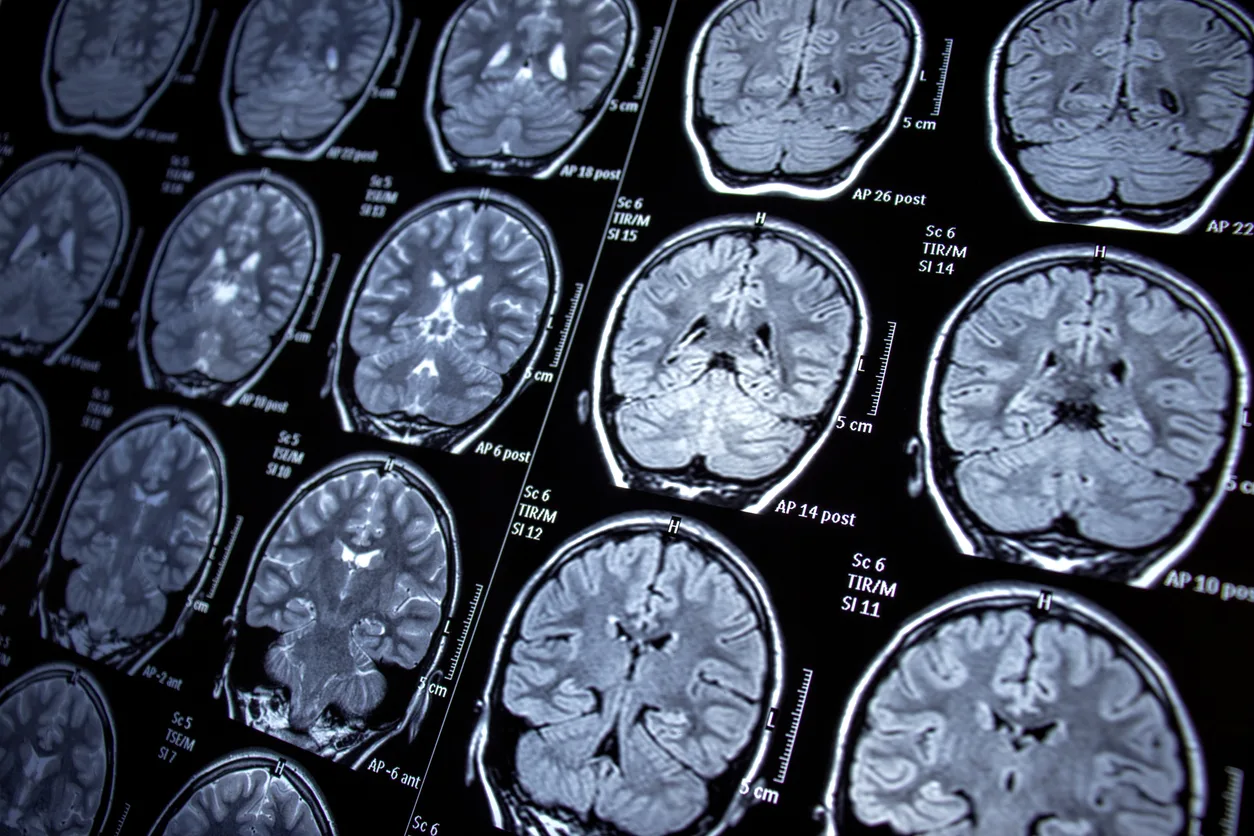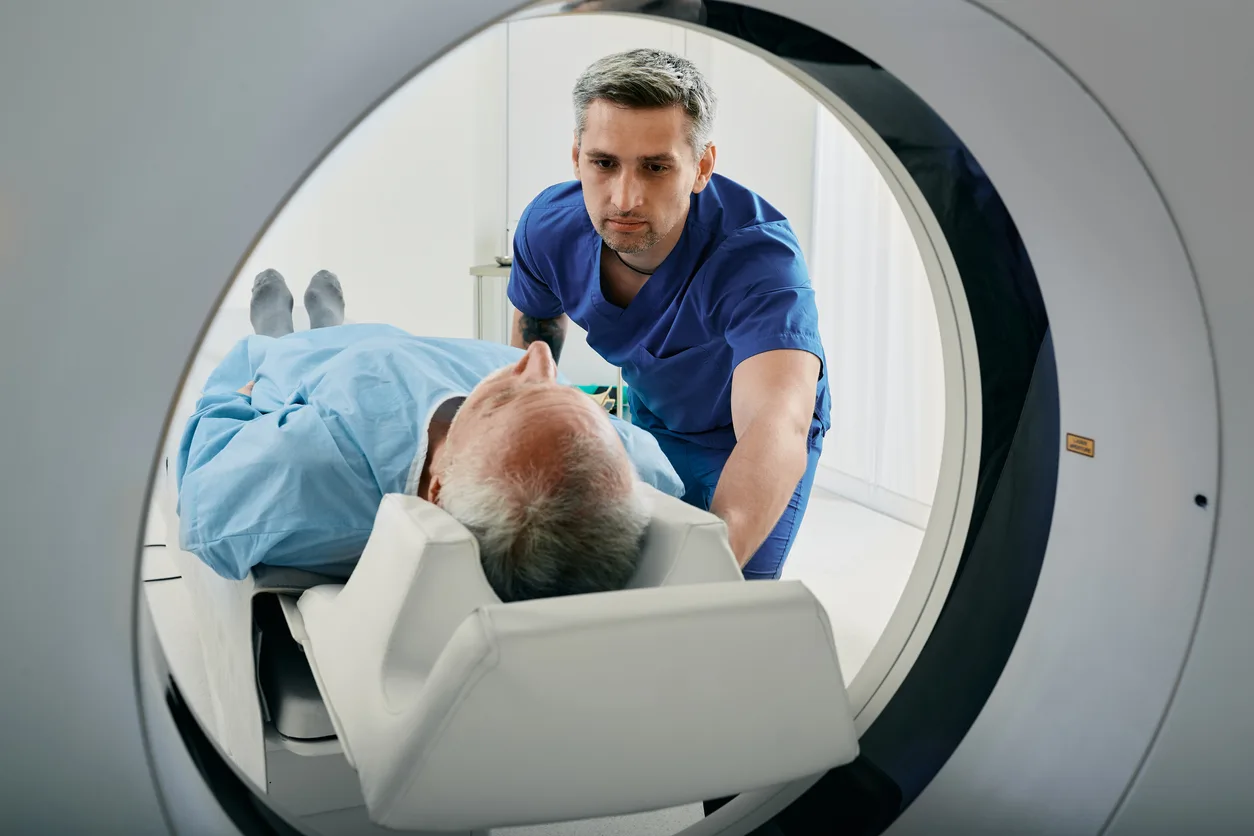MRI Services

Welcome to Millennium Physicians' state-of-the-art MRI services in Houston, Texas! Our advanced MRI technology and expert team ensure accurate and detailed imaging for better diagnostics and treatment planning. With our comprehensive scans, we cater to individuals facing health issues and provide healthcare providers with high-quality images to enhance patient management.
At Millennium Physicians, we understand the importance of precise diagnosis in determining the most effective treatment path. That's why we offer cutting-edge MRI services that utilize the latest technology to capture detailed images of the body. Our commitment to excellence and patient care sets us apart as a trusted provider of diagnostic imaging services.
With our MRI services, you can expect a comfortable and safe experience in our modern facilities. Our friendly team of professionals will guide you through the process, ensuring your comfort and addressing any concerns you may have. We strive to deliver accurate results promptly, empowering healthcare professionals with the information they need to make informed decisions about their health.
Experience the convenience and reliability of Millennium Physicians' MRI services. Trust in our expertise and advanced technology to provide you with the accurate and detailed imaging you need for better diagnostics. Take a step towards improved healthcare outcomes by choosing Millennium Physicians for your MRI needs.
What is an MRI
MRI stands for Magnetic Resonance Imaging. It is a non-invasive medical imaging technique that uses a powerful magnetic field and radio waves to generate detailed images of the inside of the body. Unlike X-rays or CT scans, which use ionizing radiation, MRI scans rely on the behavior of hydrogen atoms in the body's tissues.
MRI scans can produce high-resolution images that offer excellent contrast between different types of tissues. They are particularly useful for visualizing the brain, spine, joints, and soft tissues. The images generated by MRI scans can help diagnose various conditions, guide treatment plans, and monitor the effectiveness of therapies.
It's worth noting that MRI scans are generally safe and painless. However, individuals with certain medical implants or devices, such as pacemakers or cochlear implants, may not be eligible for an MRI due to the strong magnetic field. It is always important to inform the medical staff about any potential contraindications before undergoing an MRI scan.
Preparing for an MRI


How to prepare for an MRI Scan
Preparing for an MRI scan typically involves the following steps:
- Consultation: First, schedule an appointment with Millennium Physicians. During the scheduling process, inform them about any medical conditions you have, such as a pacemaker, aneurysm clips, or metal implants, as these may affect your eligibility for an MRI.
- Inform the medical staff: Before the scan, provide detailed information about any metal objects or devices in your body. This includes hearing aids, dental implants, surgical clips, tattoos, or any other potential sources of metal. It is crucial to disclose this information to ensure your safety during the procedure.
- Follow instructions: Our medical staff will provide you with specific instructions tailored to your situation. These instructions may include dietary restrictions, fasting requirements, or the need to avoid certain medications. It's important to follow these guidelines carefully to ensure the accuracy of the scan.
- Dress appropriately: Wear comfortable clothing without metal fasteners, buttons, or zippers. In some cases, you may be asked to change into a hospital gown. Avoid wearing jewelry, watches, or any accessories that may contain metal.
- Remove metal objects: Prior to the scan, remove all metal objects from your body, such as eyeglasses, hearing aids, dentures, and removable jewelry. You may be provided with a secure locker to store your belongings during the procedure.
- Communicate with the staff: Inform the medical staff if you have a fear of confined spaces (claustrophobia) so that they can provide appropriate measures to help you remain calm during the scan. They may offer relaxation techniques or, in some cases, prescribe a mild sedative.
- Follow additional instructions: Depending on the nature of the MRI scan, you may be instructed to arrive with a full bladder or to drink a contrast agent before the procedure. These instructions will be provided to you beforehand, and it's important to adhere to them.
Remember, the specific preparation steps may vary depending on the facility, the type of MRI scan, and your individual circumstances. It's essential to communicate with the medical staff, follow their instructions, and address any concerns or questions you may have to ensure a successful and comfortable MRI scan.
MRI Scans Can Help Diagnose:
Abnormalities in the Brain
MRI scans can detect various brain conditions such as tumors, aneurysms, multiple sclerosis, stroke, brain injury, and infections. It can also help identify the causes of seizures and evaluate the progression of neurodegenerative diseases like Alzheimer's or Parkinson's.
Spinal Cord & Nerve Abnormalities
MRI scans can visualize the spinal cord and detect issues like herniated discs, spinal cord compression, spinal tumors, and spinal stenosis. They can also identify nerve impingements and evaluate conditions like sciatica.
Musculoskeletal Problems
MRI scans are valuable for evaluating joint and bone abnormalities. They can identify fractures, ligament and tendon injuries, cartilage damage, osteoarthritis, rheumatoid arthritis, and bone tumors.
Abdominal & Pelvic Conditions
MRI scans can help diagnose and evaluate various conditions in the abdomen and pelvis, including tumors or masses in the liver, kidneys, pancreas, and reproductive organs. They can also detect abnormalities in the gastrointestinal tract, such as Crohn's disease or diverticulitis.
Heart & Blood Vessel Disorders
MRI scans can provide detailed images of the heart and blood vessels, allowing doctors to assess heart function, detect congenital heart defects, identify blocked arteries, and evaluate the extent of damage after a heart attack.
Breast Abnormalities
MRI scans can complement other imaging methods in breast cancer screening. They are useful in detecting breast tumors, evaluating the extent of disease, and monitoring treatment response.
Soft Tissue Injuries
MRI scans can detect soft tissue injuries, such as muscle tears, ligament sprains, and tendonitis. They can also identify fluid collections or infections in soft tissues.
Frequently Asked Questions About MRIs
An MRI (Magnetic Resonance Imaging) scan uses powerful magnets and radio waves to produce detailed images of the body's internal structures.
Houston Locations for MRIs

22698 Professional Dr. Ste. 150
Kingwood, TX 77339
P (832) 995-5226
F (832) 995-5228
Services Offered
- Diagnostic CT
- MRI

9319 Pinecroft Dr. Ste. 130
The Woodlands, TX 77380
P (281) 315-8120
F (281) 719-0951
Services Offered
- MRI
